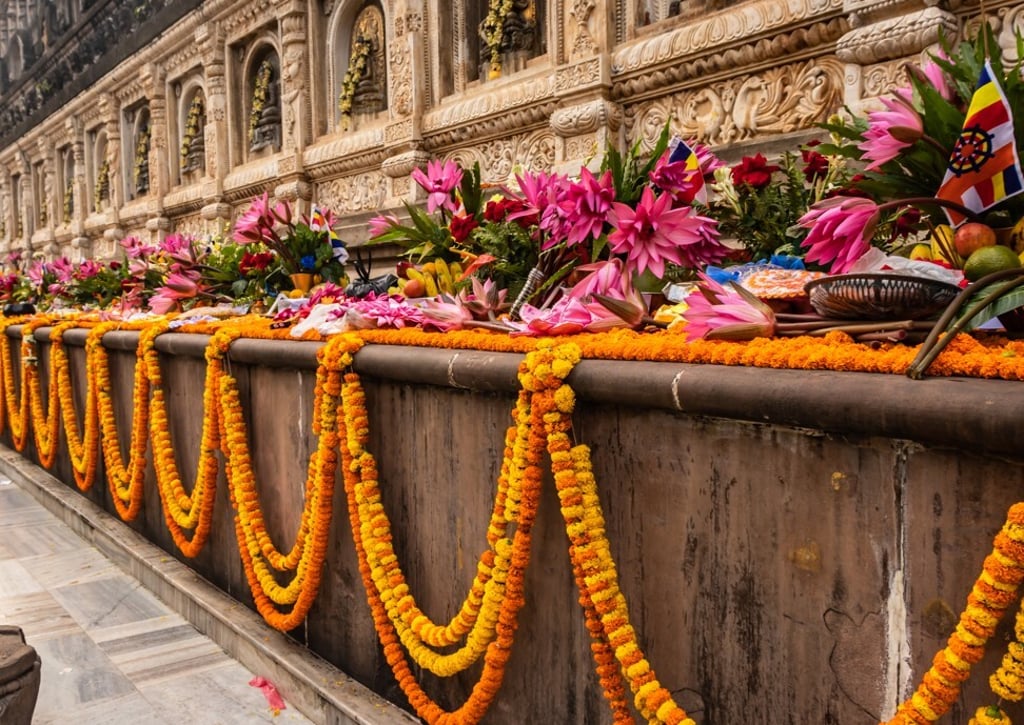Recycling India’s floral waste: how flowers left as temple offerings are being made into soap, dyes and incense sticks
- Mountains of flowers are left as offerings at temples in India every day, and when they die they are often thrown into ponds and rivers, clogging them up
- Small companies have sprung up to recycle floral waste, using it to make incense sticks, dye, coloured powders and compost

Devotees hurry to buy flowers from vendors to fill their baskets and join the sea of women heading into the gaily lit and brightly decorated temple. It’s the evening of an auspicious festival and temples all over the southern Indian city of Hyderabad are crowded with Hindu worshippers, most bringing offerings of flowers: marigolds, lilies, roses and chrysanthemums.
The faithful leave the temples with blessings, but they leave behind piles of blossoms and leaves too.
Hyderabad homemaker Aruna Parvathaneni, 70, has spent much of her life worshipping in temples, and is well aware of the lifespan of floral offerings, from purchase to them being discarded.
“Usually the flowers are dumped near trees or in water bodies,” she says, although sometimes, during festivals, the blossoms are collected in large boxes and turned into compost.

According to research by Pradip Kumar Maity for the International Journal for Research in Applied Science & Engineering Technology, about eight million tonnes of floral waste is dumped into rivers and other bodies of water in India every year, choking and polluting them, and leading to environmental degradation.
Hyderabad-based entrepreneurs Maya Vivek, 43, and Minal Dalmia, 41, say the city’s lack of waste management for dead flowers paved the way for their niche start-up, Holy Waste. It is one of a number of small commercial enterprises in the country using the dead flowers, a long neglected resource, to make incense – instead of using charcoal and sawdust, or other ingredients – as well as soap, dyes, or coloured powders for Hindu religious festivals such as Holi.
